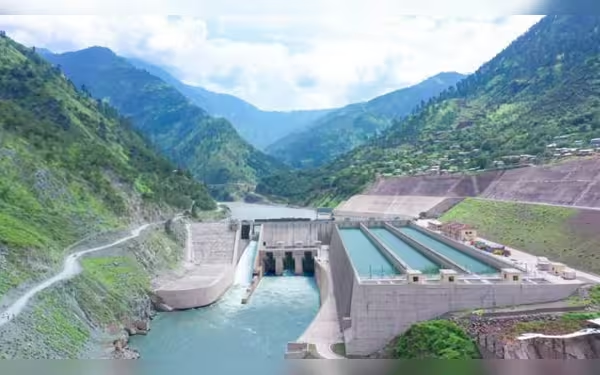Saturday, October 5, 2024 07:16 PM
WAPDA Leads Pakistan's Hydropower Revolution
- WAPDA saves Rs 143.7 billion through efficient hydropower generation
- NEPRA sets WAPDA hydel electricity tariff at Rs 3.81 per unit
- Major hydropower projects to boost WAPDA's capacity to 20,700 MW
 Image Credits: urdupoint
Image Credits: urdupointDiscover how WAPDA's strategic focus on hydropower generation in Pakistan leads to significant cost savings and sustainable energy production, with major projects set to further enhance the country's capacity.
The fiscal year 2023-24 witnessed remarkable advancements in green, clean, and cost-effective hydropower generation in Pakistan. The Water and Power Development Authority (WAPDA) successfully supplied 34.436 billion units of electricity to the National Grid through its 22 Hydel Power Stations, resulting in substantial savings for the country.
Thanks to improved hydrology and efficient operation and maintenance practices, WAPDA was able to generate an additional 3.266 billion units of hydel power. This achievement translated into saving approximately Rs 143.7 billion for the national exchequer compared to using imported furnace oil for electricity generation.
WAPDA's cumulative installed capacity of around 9,500 MW, which includes projects like Neelum Jhelum, positions hydel generation as the most cost-effective electricity source in Pakistan. The tariff set by NEPRA for WAPDA hydel electricity at Rs 3.81 per unit in 2023-24 significantly contributed to reducing overall electricity costs for consumers.
Key contributors to hydel generation such as Tarbela, Ghazi Barotha, Mangla, and Neelum-Jhelum Hydel Power Stations played a crucial role. WAPDA's strategic focus on a least-cost energy generation approach aims to increase hydel electricity's share in the National Grid.
Looking ahead, several major projects including Diamer Basha Dam, Mohmand Dam, Dasu Hydropower Project, and Tarbela 5th Extension are in progress. These projects aim to boost WAPDA's hydel generation capacity from 9,500 MW to 20,700 MW in the next four to five years, adding approximately 11,200 MW of clean, green, and affordable hydropower.
The advancements in hydropower generation in Pakistan signify a significant step towards sustainable and cost-effective energy production. With ongoing projects set to further enhance the country's hydel generation capacity, Pakistan is on track to meet its energy needs efficiently while promoting environmental sustainability.













